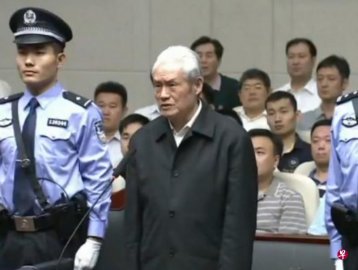In November, the PMI of Hong Kong was 47.1, which was lower than 48.6 in October, showing that the private economy in Hong Kong was significantly deteriorated, and it was the lowest since June 2016.Data pointed out that the Sino -US trade dispute continues to become the main cause of affected business activities.
The private economy of Hong Kong continued to be trapped in Sino -US trade friction. The latest announcement of the November Hong Kong Purchasing Manager Index (PMI) continued to be in the contraction range and set a new low in the past two and a half years.
After the seasonal adjustment, the PMI of Hong Kong in November was 47.1, which was lower than 48.6 in October, showing that the private economy in Hong Kong was significantly deteriorated, and it was the lowest since June 2016.PMI was compressed due to the shrinkage of the output and the amount of new orders at the same time.Data pointed out that the Sino -US trade dispute continues to become the main factor affecting business activities.
During the period, the new business fell for eight months, and the decline was nearly two and a half years older. Among them, the decline in Chinese domestic demand was most dragged down, and the enterprise further reduced production.The overall investment cost has increased, but the output price is downward.In response to weak markets and customers' bargaining requirements, enterprises have lowered the price for four consecutive months.
The company's business confidence in November was further weakened, and the output expectation index was low since March 2016.
Further turning of business prosperity
Bernard AW, chief economist of IHS Markit, said that the private economy in Hong Kong continued to be troubled by Sino -US deadlocked trade friction.The latest PMI data shows that the prosperity of Hong Kong's business environment has further deteriorated in the middle of the fourth quarter.The market demand is still weak, and the newly -connected business of enterprises has fallen again due to the decrease in export orders.It is worth noting that sales to mainland China have shrunk to the low position in three years.The heating of the trade war has added unknown factors to the business environment and disrupted the plan to develop business.
He pointed out that business emotions continue to be negative, and this situation does not teach people accidents.The output expectation index touches the low level in early 2016.As for the reasons for pessimism, the industry mentioned that competition has intensified and the RMB weakened.Different forward -looking indicators reflect that the growth momentum may be further reduced in the next few months.
Xue Junsheng, the chief economist of Hong Kong Hang Seng Bank, believes that there is no need to worry too much about the performance of Hong Kong PMI in December, because China and the United States have suspended new tariffs, this month's PMI may rebound.However, he also said that the slowdown in the economic growth of Hong Kong and the continued uncertain economic environment of the peripherals. In the next few months, Hong Kong PMI will be more repeated, and the downward pressure will still be large.
Xue Junsheng believes that market fluctuations may affect consumer demand, and Hong Kong's economic growth may slow down to 2%to 3%next year.
Hong Kong's economic development is weak, and even the private residential market has also been affected.According to the Hong Kong "Ming Pao" reported yesterday, Zhao Guoxiong, executive director of the local real estate development businessmen, also rarely sang the prospects of the off -the -property market.He said that the Group has already expected that the Sino -US trade war will have a negative impact on the economy and will deteriorate. Last year, the group sold a new house of HK $ 50 billion (S $ 8.75 billion) in a new residential market.This year is even worse, and property prices in Hong Kong next year may fall by 25%to 30%.
The report quoted Zhao Guoxiong pointed out that although Hong Kong has increased its interest rates slightly so far, the price of the property in the past few years has risen, and the income of the people cannot catch up, which has caused the burden on the building to be increasing.He estimates that the impact of the Sino -US trade war on buildings next year will be more obvious, especially nano buildings (super small residential units) are even more high.


